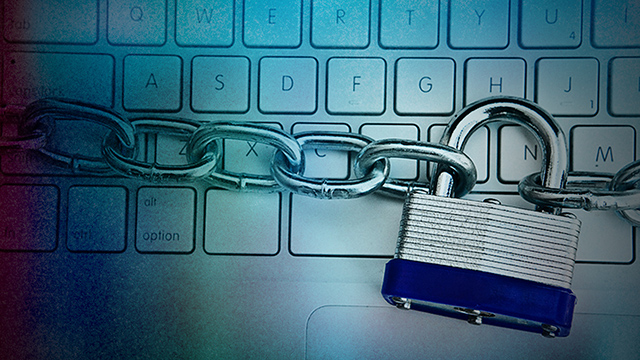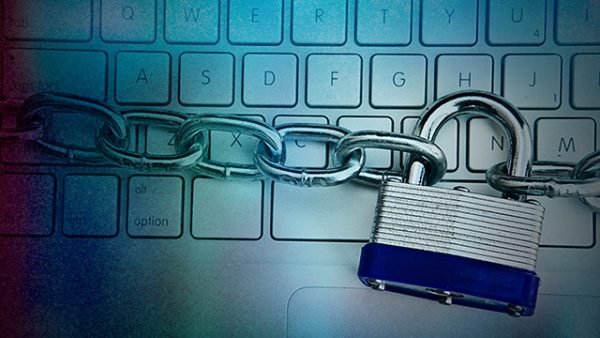If you use the internet frequently, there’s a chance that you’re leaving a significant digital footprint. This isn’t always a harmless thing. Bad actors are constantly seeking opportunities to exploit security lapses. So you must find ways to protect your privacy online.
Read more about Tech
The need for vigilance applies as much to people at work as it does to those who use the internet in a private capacity. No matter what you’re doing online, you should have your guard up. With the right precautions in place, you can avoid falling prey to even the most sophisticated attempts at breaching your privacy. Here are 10 such measures you can take starting today:
Use a VPN for Public WiFi
Whenever you’re connecting to the internet via public WiFi, ensure that you use a VPN (Virtual Private Network) to encrypt your connection. Public WiFi is notoriously insecure, meaning that ill-intentioned persons can snoop on your browsing activity if you’re on it. And there’s no telling what they could do with the information they obtain. There are several free VPN apps to choose from, but it’s worth noting that the paid packages tend to offer greater security.
Log Out of Your Accounts
Sign out of your accounts after using them. This is especially important when you’ve accessed them on a public or shared computer. Failing to do this leaves your accounts open to visitation by strangers—and not everyone can be trusted to not exploit your information. You may want to check for an automatic log-out provision in the settings of the platforms you use, just for added safety.
Be Careful About Granting Permissions to Apps
You have probably had to grant permission to apps or websites to access or use some of your data. While this may help them serve you better, there’s a risk that sensitive information will be collected from your end without your being aware of it. Be cautious about what apps or websites you grant permission, to and what you permit them to do. Always double-check before giving any platforms the go-ahead to access items on your devices.
Use Two-Factor Authentication
Two-factor authentication (2FA) means implementing a second security check beside a password. That could be a text message, fingerprint, voice recognition, or hardware token. What this does is reduce the likelihood that an unauthorized party will be able to access your email, social media or banking accounts, as they will have to contend with two successive barriers.
Sign up for the Connect Nigeria daily newsletter
Don’t Overshare on Social Media
It’s nice to make friends and build connections on social media. But you need to strike a balance between being approachable and maintaining some privacy. Avoid sharing personal information that cybercriminals could use against you (or someone else). Make sure your profile gives only details that the public needs to know about you. Check the profiles of people who send you requests to connect before deciding whether to accept them or not. And review your privacy settings periodically.
Weigh Your Thoughts Before Posting
Another one of the ways to protect your privacy online is to be mindful of the digital footprint you create. This comes down to considering your thoughts and deciding whether or not you will want them online forever, before posting them. We say “forever” because online posts are difficult to fully erase from the internet. Even if you delete your post, it may be archived somewhere, or someone may have a screenshot of it.
Disable Tracking and Location Services
Some apps, websites and web browsers track your location. They do this to tailor ads or provide location-specific content. However, this comes with security risks, such as the danger that cybercriminals may find out where you are. To prevent this, you’ll want to disable tracking and location services when you don’t need them.
Use Private Search Engines
If you’re extra cautious about online privacy, it’s a good idea to use search engines that prioritize this. In recent years, we’ve seen a number of these search engines emerge, so you have options to choose from. Some of the better-known ones include Brave, DuckDuckGo, and Startpage. These don’t collect data on your searches.
Use Encrypted Messaging Apps
Your private conversations are better had on encrypted messaging apps. Unlike regular messaging platforms, these apps encrypt the texts, calls, and files that are sent and received through them. This ensures that your communication remains private, and isn’t accessible by hackers. A good app in this category is Signal.
Back Up Your Data
You don’t want to lose all your data in a cyber-attack or hardware failure. To prevent that from happening, you should back up your files to an external hard drive or cloud storage. In the event of a security breach or disaster, you’ll be able to retrieve information from these sources. Also, make sure to encrypt your backup to keep it from being accessed by unauthorized persons.
Register to attend the CN Business Mixer
Final Words
The internet is saturated with useful content. It’s a vast space brimming with opportunities to educate, inform, and entertain. But it’s also troubled by criminal elements who prey on vulnerable users. You can save yourself the cost of falling victim to their schemes by following these 10 ways to protect your privacy online that we have discussed here.
Featured Image Source: Bill Moyers
Got a suggestion? Contact us: [email protected]


